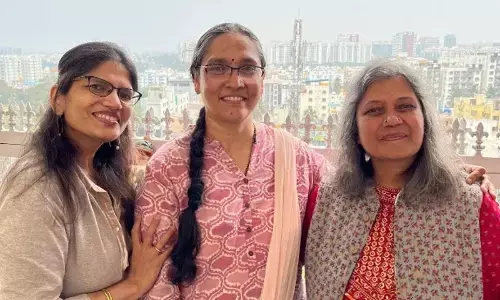Economics Nobel goes to 3 for institutions-prosperity study

Acemoglu and Johnson work at the Massachusetts Institute of Technology and Robinson conducts his research at the University of Chicago
Stockholm : The Nobel memorial prize in economics was awarded Monday to Daron Acemoglu, Simon Johnson and James A. Robinson for research that explains why societies with poor rule of law and exploitative institutions do not generate sustainable growth. The three economists “have demonstrated the importance of societal institutions for a country's prosperity,” the Nobel committee of the Royal Swedish Academy of Sciences said at the announcement in Stockholm.
Acemoglu and Johnson work at the Massachusetts Institute of Technology and Robinson conducts his research at the University of Chicago. “Reducing the vast differences in income between countries is one of our time's greatest challenges.
The laureates have demonstrated the importance of societal institutions for achieving this,” Jakob Svensson, Chair of the Committee for the Prize in Economic Sciences, said. He said their research has provided "a much deeper understanding of the root causes of why countries fail or succeed.” Reached by the academy in Athens, Greece, where he is due to speak at a conference, the Turkish-born Acemoglu, 57, said he was surprised and shocked by the award. “You never expect something like this," he said. Acemoglu said the research honoured by the prize underscores the value of democratic institutions. “I think broadly speaking the work that we have done favours democracy,” he said in a telephone call with the Nobel committee and reporters in Stockholm. But he added that “democracy is not a panacea. Introducing democracy is very hard. When you introduce elections, that sometimes creates conflict.”
Asked about how economic growth in countries like China fits into the theories, Acemoglu said that "my perspective is generally that these authoritarian regimes, for a variety of reasons, are going to have a harder time ... in achieving ... long-term sustainable innovation outcomes.” Acemoglu and Robinson wrote the 2012 bestseller “Why Nations Fail: The Origins of Power, Prosperity, and Poverty,' which argued that manmade problems were responsible for keeping countries poor. In their work, the winners looked, for instance, at the city of Nogales, which straddles the US-Mexico border. Despite sharing the same geography, climate, many of the same ancestors and a common culture, life is very different on either side of the border. In Nogales, Arizona, to the north, residents are relatively well-off and live long lives; most children graduate from high school.















